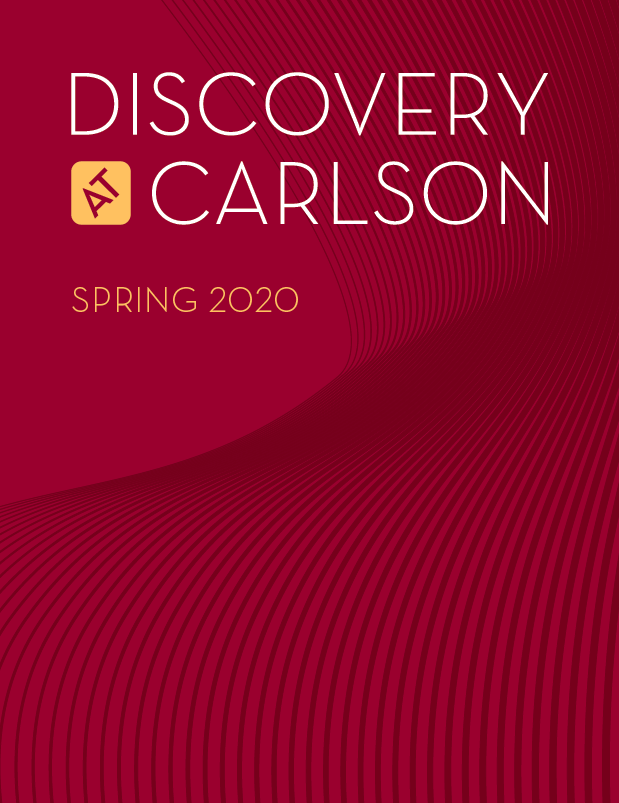
Salman Arif: Why quarterly reporting benefits the economy
Tuesday, May 19, 2020
In the United States, publicly traded companies are required to report their financial performance quarterly. Yet, many other countries only require semi-annual reports.
A number of critics, from opinion page writers to President Donald J. Trump, suggest that U.S. companies might be better off adopting less-frequent reporting requirements. The idea is that such a move takes pressure off executives to meet short-term goals in favor of creating long-term value. But how would financial markets and investors fare under such a system?
New research by Carlson School Assistant Professor Salman Arif finds that less-frequent reporting leads to greater volatility and mispricing in the stock market, as investors rely excessively on alternative sources of information to determine how well their investment is doing.
Stock market “butterfly effects”
As a derivatives trader for JP Morgan in the early 2000s, Arif says he noticed that non-U.S. firms’ stock prices (e.g., UK’s Vodafone) tended to move dramatically after American companies in the same industry (e.g., Verizon) reported their quarterly earnings.
“I wanted to know why these big stock market reactions might be happening around the world, and I realized that foreign companies often had long stretches of time when their investors were in the dark,” Arif says. “That got me wondering: ‘Does the reaction change depending on when they report and when they don’t?’”
Many years (and a business PhD) later, Arif finally found a chance to dive in.
He and his collaborator gathered thousands of quarterly reports from American companies across many industries and compared them to similar international firms.
They uncovered a global ripple effect when an American company reported its quarterly earnings. For example, the stock price of Vodafone or Japan’s NTT Docomo would rise or fall in tandem as investors reacted to a quarterly report from Verizon. The spillovers were twice as strong for foreign firms whose quarterly results were absent because they only reported semi-annually.
Arif suggests this happens because investors suffer from an “information vacuum” when firms provide financial reports less often. Information-starved investors rely more aggressively on alternative signals, such as news from industry peers, causing the stock prices of semi-annual firms to respond more heavily to timelier sources of information.
Interestingly, the swings in foreign stock prices reversed when the foreign firm finally announced its own earnings, indicating investors originally overreacted to the timelier news from the U.S.
“We conclude that less-transparent reporting causes more volatile and less efficient stock prices,” Arif says.
Even though overreactions are ultimately corrected, Arif cautions that volatility still impacts the market.
“Volatility causes people to view the market as riskier than it actually is, so they’re more likely to withdraw their money or not invest in the first place,” he says.
Less-transparent reporting causes more volatile and less efficient stock prices.
A better way to avoid short-term thinking
Overall evidence suggests that more frequent reporting likely isn’t to blame for often-heard allegations of short-term thinking in corporate America, says Arif.
“Many of the world’s most successful companies are located in the U.S.,” he says. “They’ve clearly found a way to deliver long-term value to their investors and customers even while reporting their financial results every three months.”
Despite no silver bullet, Arif suggests one potential fix: Stop the common practice of managers providing quarterly guidance, whereby they announce expected earnings per share for the upcoming quarter.
“There’s little evidence that less-frequent reporting actually reduces corporate myopia,” he says. “But one place where managers could start to fix this is by not locking themselves into trying to meet or beat short-term earnings targets they themselves voluntarily announce.”
